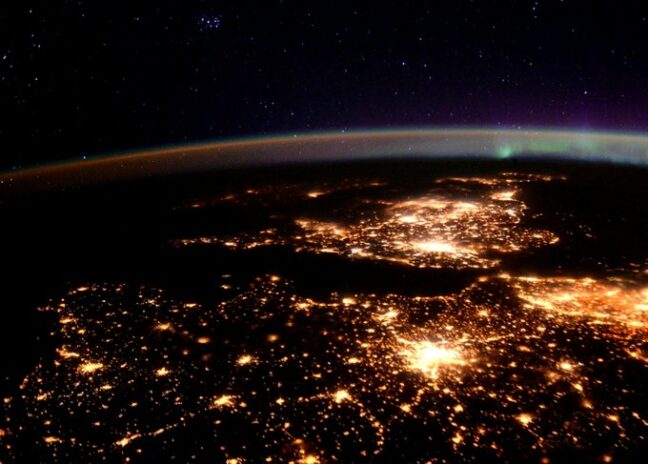Some revolutions happen quietly, but have profound impacts.
We used to have the idea that “Mankind” was completely separate from “nature”. We thought that humans were the only species on earth with consciousness/intelligence/creativity, and that the Earth and its resources were there for us to exploit without comeback.
Some of us still do think this, but over the last few decades, it has become increasingly clear that none of these statements are true.
Medics are increasingly realising that “humans” and “nature” are completely entwined not least because the majority of cells in our bodies are actually non-human gut and other bacteria. We’re steadily discovering more and more about the way in which these influence us, even in things one normally thinks of as conscious decisions or innate facets of personality. For example, our gut bacteria play an important role in defining our dietary preferences and whether we’re thin or obese. Change your diet (in my case, by marrying a vegetarian) and after a while your gut bacteria will change too and you’ll no longer fancy your old diet. The parasite Toxoplasmosis, lives in cats, but when it infects mice it makes them more likely to take risks (and thus get eaten by a cat). It quite probably makes people more risk prone too. This could be very significant, because it is estimated that about 30% of the UK population are infected (via contact with cat poo)
We used to think that humans were totally unique in being self aware, creative tool users, but over the last few decades we’ve been joined by an ever lengthening list other species. Chimpanzees, elephants, dolphins and magpies seem to be self aware. Creativity is surprisingly common. Japanese macque monkeys have been observed making snowballs and playing with them. Rather morbidly, researchers observed some creative herring gulls that had invented a way of catching and drowning rabbits. Tool use is widespread: chimpanzees, crows and even ants use tools. It’s becoming obvious that our uniqueness is only one of degree. And as archaeologists unearth an increasing array of other near-human species: Neanderthal, Denisovan and the tiny hobbits (homo floresiensis), all of which have clearly interbred with “us” at some stage in our past, it becomes clear that if homo-sapiens is standing on any sort of pedestal, it’s a very wobbly pedestal indeed.
We are also realising that we can’t exploit the world’s resources without comeback. We are now using such a significant proportion of its resources (over 40% of land is used for agriculture) that the impact is visible with the naked eye from space, and the constraints are becoming obvious. When it comes to throwing things away ” we’re realising that “there is no away” to throw it to. When we burn fossil fuels, we contribute to climate change. The rubbish we throw out leaches toxics into the water supply, or contaminates seas, beaches, fish and ultimately us, with microscopic particles of plastic waste. The manufacture of the products we buy all seem to have caused some degree of social or environmental damage, whether that’s child labour making cheap clothes, or the mining of the minerals used in our phones. Everything we do seems to have some sort of unintended impact, usually an adverse one (if it’s beneficial, we tend to pretend it’s what we intended!)
Given this it’s easy to switch off, to get depressed, or get increasingly frozen by “analysis paralysis” trying to decide what’s best to do. Or to fall for simple soundbite solutions like “take back control”. Or (as one client of mine) to embark on the hopeless search for a course of action that’s guaranteed free of possible all adverse consequences.
But, more productively, this growing awareness of our interconnection is also driving some important consumer trends: We may have hit “peak stuff” as people look for experiences rather than more possessions. There is also a major consumer trend towards “guilt free consumption”, boosting interest in things like “clean” healthy food, fairtrade products and energy efficient appliances.
Businesses are also responding: changing their focus, improving efficiency and cleaning up supply chains. I was recently told that paying attention to ethical and environmental issues is now so mainstream that businesses that want to brand themselves as ethical have to work even harder at it.
In the Copernican revolution of the 16th century we realised that the sun did not go round the earth. But for the last few hundred years in the West we’ve still thought of the earth as, metaphorically speaking, revolving around us as individuals. We’re now starting to realise that it doesn’t: we’re just one part of an interconnected web of life on the earth, and both powerful and vulnerable as a result.
This will have profound implications.
